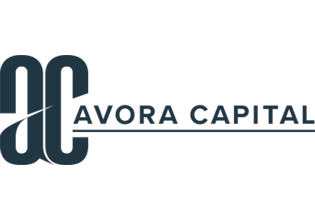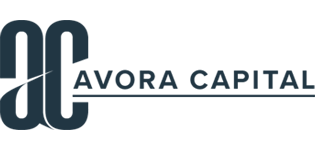
This glossary of property investment terms is designed to help you understand frequently used terms within the property investment industry.
A
Annual Return
The geometric return of how much an investment property has increased on average over a year. The figure for an annual return is calculated using the total rental income and an estimate of capital growth over a 12-month period, the end result will show what an investor would earn if the annual return was compounded over a period of time.
Asset
An asset is a resource with economic value. Assets come in both physical, and non-physical forms, an example of a physical asset would be property, and an example of a non-physical asset would be shares in the stock market.
Assured Rental Yield
A rental guarantee is where for a set period of time, an investor will receive a fixed return on an investment property. This means that regardless of if the property is tenanted or not, the rental income will be guaranteed for the property for the specified period.
B
Below Market Value
Acquiring a property that is below the current market value. If you acquired a £150,000 property for £140,000, this would be an example of acquiring a property that is below market value.
BRR
BRR stands for buy, refurbish, refinance. It is when an investor buys a rundown property, and refurbishes it, before renting it out, which finances buying another property.
BTL
BTL stands for buy-to-let, which is when an investor buys a property to let out for a profit.
C
Capital Appreciation
Capital appreciation, also known as capital growth, is an increase in the price of assets over time.
Capital Repayment Mortgage
A capital repayment mortgage is a mortgage where an investor pays towards clearing part of the loan each month along with paying part of the interest owed on the loan. Capital repayment mortgages usually span between 5-40 years.
CGT
CGT stands for capital gains tax. It is a tax that has to be paid whenever you sell certain goods, or assets that are worth more than £6,000.
Collective Investment Scheme
Collective investment schemes, also known as investment funds, mutual funds, or simply funds, is an investment shared by a group of investors. Profits and rental income are shared between all investors.
Comparative Market Analysis
The estimated value of a property according to the price of other properties sold in the same location.
D
Diversification
The process of adding different types of investment to a property portfolio.
E
Equity
The difference between the owners outstanding level of debt and the property’s estimated value.
Exchange Of Contracts
When legal parties representing the buyer and seller exchange contracts for the property. The buyer would also put down the deposit for the property at this stage.
F
Financial Asset
Where value is derived from a contractual claim in a non-physical asset such as shares in the stock market.
Freehold
A freehold means you own the property, and also the land that it is built on.
Fully Managed Investment
A fully managed investment, also known as a hands-off investment, is an investment that is fully managed and requires no input by you as the owner. These types of investments are perfect for investors who are cash-rich but time-poor.
G
Gross Development Value
The forecasted revenue of a property to be sold in the current economic market.
Gross Rate Of Return
The total rate of return on your investments before any fees or expenses.
Gross Yield
The rate of return the property will generate each year before deducting any expenses.
H
Hedge
An investment strategy that is used to reduce risk and offset potential losses and gains.
High Net Worth Investor
In the United Kingdom, a high net worth investor is an individual who earns more than £100,000 a year, or holds assets valued at £250,000 or more.
HMO
HMO stands for ‘house in multiple occupation’. This is a property where people who are not of the same family are living together and share facilities such as a bathroom and kitchen.
I
Institutional Investor
An organisation who invests money on behalf of its investors.
Interest Only Mortgage
A mortgage where the buyer only pays off the interest, reducing the cost of payments each month. The remaining loan balance is then usually paid off once the property is sold.
Income Tax
A tax applicable to any income you receive, including income from property.
Investment Portfolio
An investment portfolio is a collection of assets that an investor owns. This could include property, gold, cryptocurrency, stocks, and more.
L
Leasehold
A leasehold means you own the property but not the land on which it is built on.
Leverage
To purchase a property with money borrowed from the lender.
LTV
LTV stands for loan to value. It is the ratio of what you borrow against a mortgage, against the deposit that you have.
N
Net Profit
Net Yield
The annual rate of return on an investment after expenses have been deducted.
O
Off-Plan
The act of purchasing a property before it has finished construction.
Off-Market Value
The price you would be able to sell your property for in the current economic climate.
R
Residential Property Investment
An investment in residential property, for example a townhouse.
ROI
ROI stands for return on investment and is the annual profit that is generated by an asset, meaning the investment is earning more than it costs.
S
Scaling
Simply means increasing the size of your investment portfolio, and investing in further assets.
Seed Capital
The money raised to invest in assets.
Serviced Accomodation
Short term, and long term fully furnished properties to let.
Stamp Duty
Stamp Duty, also known as stamp duty land tax, is a tax you have to pay if you buy land or residential property at a certain price. It was originally brought in as a temporary measure to raise finances for the war against France, however, it proved so successful as a means of raising revenue for the government, that it is still in place today.
V
Void Period
When a rental property doesn’t have a tenant in it for a certain length of time.
Y
Yield
The earnings a property has generated for its owner over a set amount of time.


